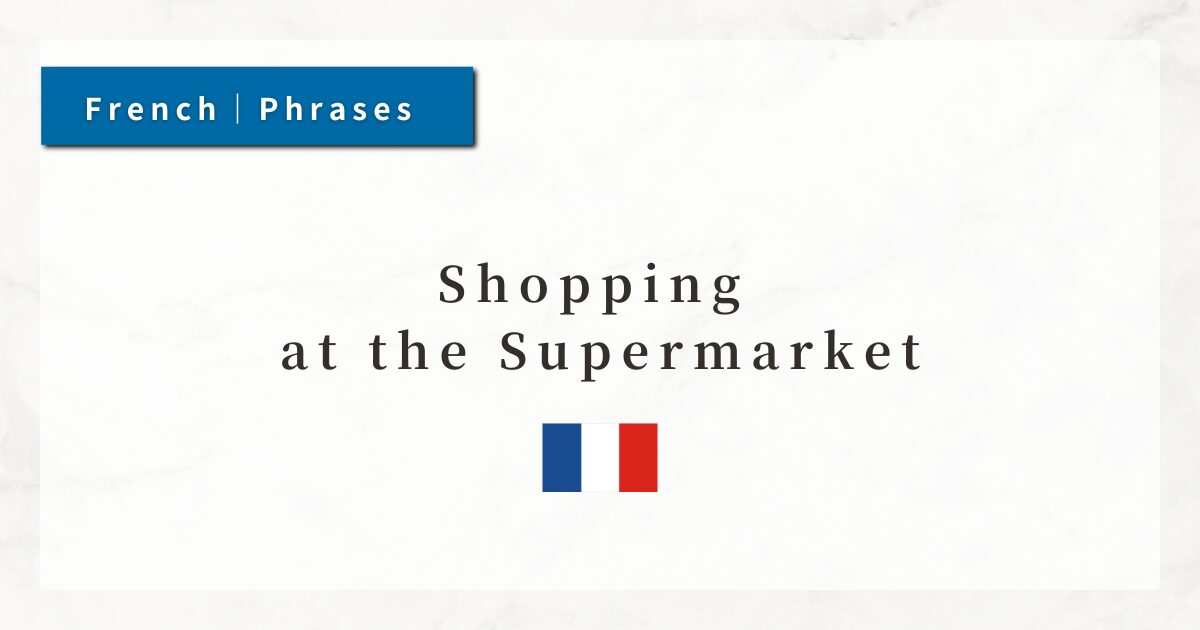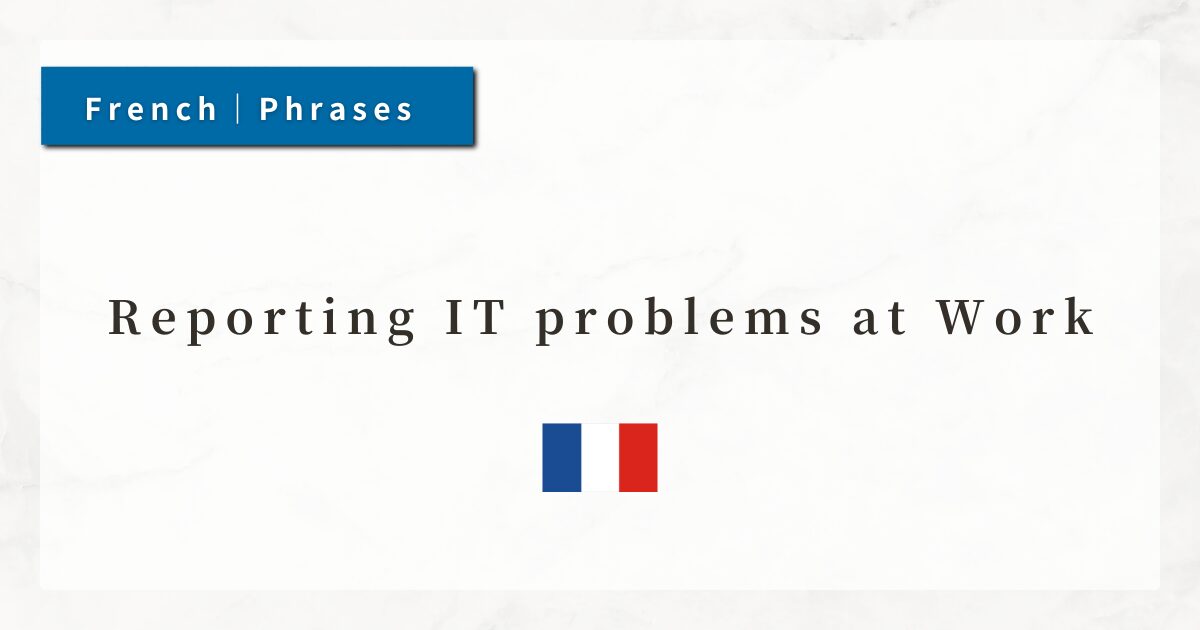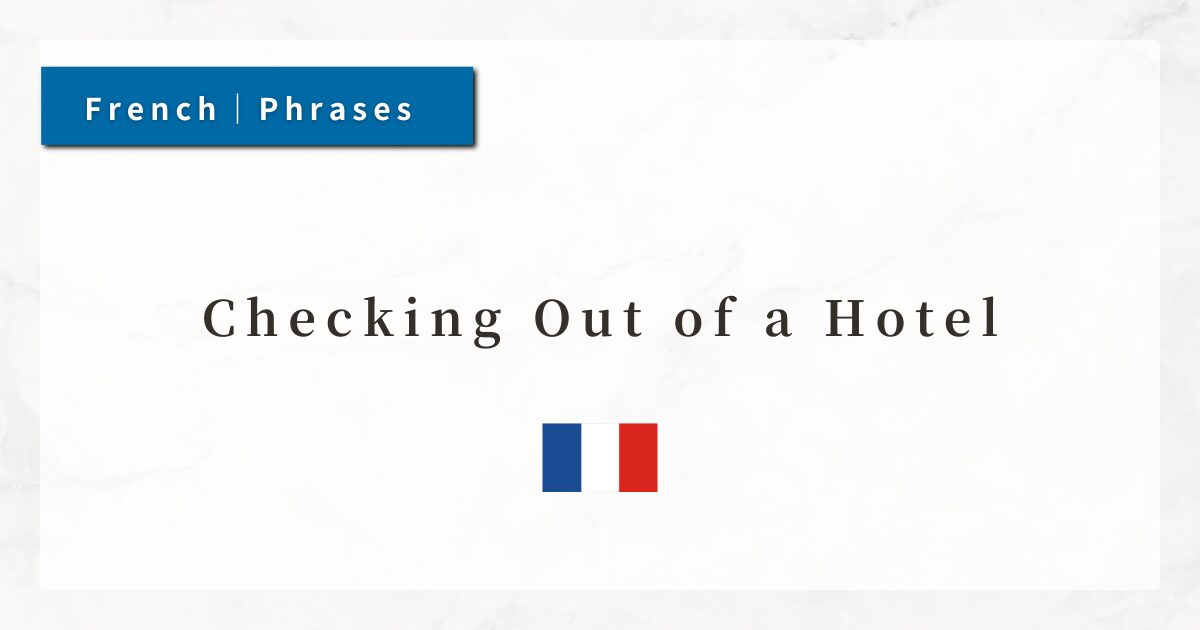#28 Shopping at the Supermarket | Useful French Phrases for Shopping

When staying in France, you will often find yourself shopping at supermarkets.
Unlike restaurants, supermarkets are part of daily life, so being able to use even simple phrases can be extremely useful.
Here, I will introduce typical exchanges such as asking where items are, asking about prices, and making payments—together with detailed explanations of the most common French expressions used in supermarkets.
Dialogue

Excusez-moi, où sont les fruits et légumes ?
(Excuse me, where are the fruits and vegetables?)

Ils sont au fond du magasin, à droite.
(They are at the back of the store, on the right.)

Merci. Combien coûte ce paquet de pâtes ?
(Thank you. How much is this packet of pasta?)

Deux euros cinquante.
(Two euros fifty.)

Est-ce que je peux payer par carte ?
(Can I pay by card?)

Oui, bien sûr.
(Yes, of course.)
1. Asking Where Items Are
Supermarkets are large, and you often need to ask where items are. The phrase “Où est / Où sont … ?” is essential.
- Où est le lait ?
(Where is the milk?) - Où sont les fruits et légumes ?
(Where are the fruits and vegetables?)
Point: Use “Où est … ?” for singular nouns. Use “Où sont … ?” for plural nouns.
For example, le pain (bread) and le beurre (butter) are singular, so “Où est … ?” is used, while categories like fruits or vegetables are plural, so “Où sont … ?” is correct.
2. Asking for Prices
Two common ways to ask “How much is it?” in French are:
- Combien coûte … ?
(How much does … cost ?) - C’est combien ?
(How much is it ?)
“C’est combien ?” is more casual and is often used in supermarkets.
Useful units to remember when asking about specific products:
- paquet → pack / bag
- bouteille → bottle
- boîte → box / can
3. Confirming Payment Methods
At the checkout, you may need to ask or specify how you want to pay.
- Je peux payer par carte ?
(Can I pay by card?) - Je peux payer en espèces ?
(Can I pay in cash?)
In some supermarkets, there may be a rule such as “no card payments under €10,” so this question is especially practical.
4. Prices and Numbers
Understanding how prices are written and spoken in French is important.
In France, decimals are written with a comma (,), not a period.
- 2,50 € → deux euros cinquante
- 15,20 € → quinze euros vingt
The smaller unit centimes (cents) is usually omitted in everyday conversation. Simply saying “deux euros cinquante” is enough.
Summary
- Où est / Où sont … ?
→ Basic expressions to ask where items are. - Combien coûte … ? / C’est combien ?
→ Standard phrases for asking prices. - Je peux payer par carte / en espèces ?
→ Asking about payment methods.




